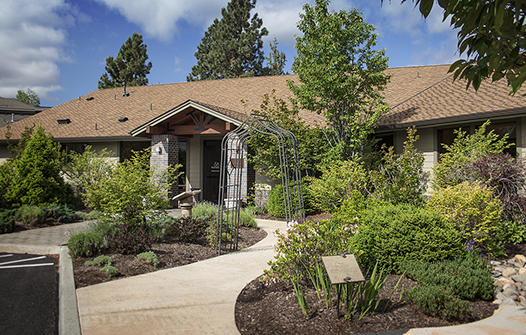It’s a fact that in the United States today, over half of all people suffer from at least one chronic illness. Over the past century, causes of death have changed; Americans used to die primarily from infection, though today our leading causes of death are heart disease, cancer, stroke and COPD. There are 2.4 million deaths per year related to chronic illness, and only 10 percent of deaths from a sudden event. Because of this, increasing attention is being focused on how to best care for patients with chronic illness.
Palliative care is specialized medical care intended to improve quality of life and alleviate suffering for people living with serious illnesses. Medicare defines palliative care as “patient and family-centered care that optimizes quality of life by anticipating, preventing and treating suffering.” What that means is that palliative care addresses physical, emotional and spiritual distress throughout the continuum of illness.
Palliative care specialists listen to patients, and help patients have better control over their conditions by understanding treatment options, then help them decide which are best for them. Expert treatment of pain and other distressing symptoms will improve quality of life, and enable better tolerance of medical treatments. Palliative care is not about deciding if to treat, but how to treat. This care is provided by a team, which can consist of physicians, nurses, social workers, therapists and chaplains.
When is it the right time? Palliative care is appropriate at any stage of a serious illness, and ideally is introduced early in the treatment course. Some of the common illnesses palliative care specialists treat are cancer, heart failure, COPD, dementia and ALS, among others. Palliative care specializes in treating physical symptoms such as pain, fatigue, shortness of breath, nausea, anxiety, bowel issues and sleeplessness. This kind of care provides an extra layer of support to patients and families, and the palliative care team works closely with a patient’s other doctors to help coordinate care across different health care settings and improve communication among a patient‘s health care team.
Being diagnosed with a serious illness can be overwhelming for both patients and their family. Relieving physical and emotional suffering will improve quality of life, and can make coping with an illness easier. It is now well established that patients who receive palliative care early in their treatment, along with traditional care, not only live better, but live longer. Because of studies that support this outcome, early integration of palliative care is becoming the new standard of care for patients with advanced cancer. In fact, The American Society of Clinical Oncology (ASCO), the World Health Organization (WHO) and the Comprehensive Cancer Network all recommend palliative care be involved early in treatment for patients getting cancer-directed therapies.
Where can you get this care? Palliative care teams are common in the hospital setting, and now 80 percent of hospitals with over 50 beds in the US have a palliative care program. And now, every year, more palliative care is also being provided in outpatient settings, including medical clinics or even in a patient’s own home. Reaching patients early in their treatment course can help prevent unwanted hospitalizations, and help patients get the kind of care they want. By assisting with advance care planning and establishing goals, palliative care specialists also strengthen communication and decision-making between patients, families and physicians.
Many people aren’t aware of the difference between hospice and palliative care. Hospice is a specific type of palliative care, and is appropriate during the last six months of life, when a patient is no longer seeking curative treatment. Many treatments are continued for patients while they are on hospice. The goal of hospice is to give the best possible quality of life, and help patients have control, dignity and comfort during these months. Hospice also provides support and grief therapy for families. Palliative care is appropriate at any stage of a serious illness, even when a full cure is expected.
If you are interested in more information about palliative care, visit Partners In Care’s website at partners-bend.org or check out palliativedoctors.org.
Jennifer Blechman, MD is a hospice and palliative care physician working at Partners in Care, Central Oregon’s only independent, non-hospital based hospice and home health organization. She has lived in Bend since 2002, and worked as a family doctor for 11 years prior to completing a Hospice and Palliative Medicine Fellowship at Stanford in 2012.




